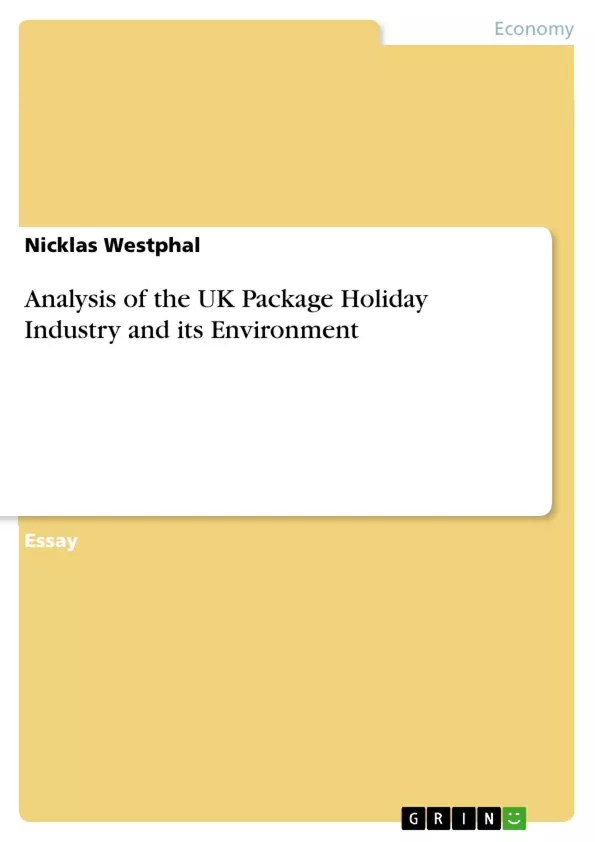In this paper, I will analyse the development of the UK package holiday industry between 1974 and 2015. This entails an analysis of the industry structure in both years seen from a Porter’s 5 forces view, a detailed explanation of macro environmental causes of this development as well as an illustration at Thomas Cook.
The major changes in the industry structure are significant increases in buyer- and supplier power, in threat from substitutes as well as in rivalry within the industry. This is majorly triggered by changes in the macro and meso environment:
(1) The advent of the Internet and digital revolution opened up new distribution and information channels, shifting the power towards buyers and suppliers, as well as new possibilities in sophisticated data collection and analysis.
(2) Growing intercultural experience of Britons triggered a shift in preferences towards individualised travelling.
(3) A rising awareness of issues concerning society’s wellbeing has started to become a concern in travel and will become more important in the future.
(4) A number of deregulations have acted as catalysts for the globalisation of the package holiday industry.
(5) Rising macro environmental worries, political unrest and natural catastrophes have led to the recovery of the industry after years of decline due to the blossoming of independently organised holidays.
(6) The emergence of budget carriers has enabled customers to organise their own holiday at a lower price.
These environmental changes have caused Thomas Cook to change in 4 main areas since 1974: (1) they have become part of the Thomas Cook Group, (2) they pursue a digital innovation leadership and development of multi channel distribution, (3) they differentiate their products by high flexibility and quality guarantee through concept and partner hotels, (4) they offer superior service by being in close dialogue with its customers and staying in touch in the post-holiday period to learn from customers’ critique.
Table of Contents
- Abstract
- Introduction
- 5 Forces analysis 1974
- Rivalry among existing competitors
- Power of buyers
- Power of suppliers
- Threat of new entrants
- Threat of substitutes
- 5 Forces analysis 2015
- Rivalry among existing competitors
- Power of buyers
Objectives and Key Themes
This paper analyzes the evolution of the UK package holiday industry between 1974 and 2015. It examines the industry structure from a Porter's 5 forces perspective in both years, explores macro environmental causes for these changes, and illustrates these concepts through the example of Thomas Cook.
- The impact of the digital revolution on the package holiday industry
- The changing consumer preferences in travel
- The role of deregulation in globalizing the package holiday industry
- The emergence of budget carriers and their impact on the market
- The adaptation strategies of Thomas Cook in response to environmental changes
Chapter Summaries
The paper begins by providing an overview of the development of the UK package holiday industry, highlighting the emergence of mass package holidays in the 1950s. It then delves into a detailed analysis of the industry structure in 1974, using Porter's 5 forces framework. This analysis examines the intensity of rivalry among existing competitors, the power of buyers and suppliers, the threat of new entrants, and the threat of substitutes.
The paper continues by discussing the significant changes that occurred in the package holiday industry between 1974 and 2015, focusing on the impact of the digital revolution, the rise of budget carriers, and the changing consumer preferences. The analysis then examines the industry structure in 2015, using the same Porter's 5 forces framework.
Keywords
The primary keywords and topics of this paper include: UK package holiday industry, Porter's 5 forces, digital revolution, consumer preferences, deregulation, budget carriers, Thomas Cook, industry structure, macro environment, and travel.
- Quote paper
- Nicklas Westphal (Author), 2016, Analysis of the UK Package Holiday Industry and its Environment, Munich, GRIN Verlag, https://www.grin.com/document/367958



